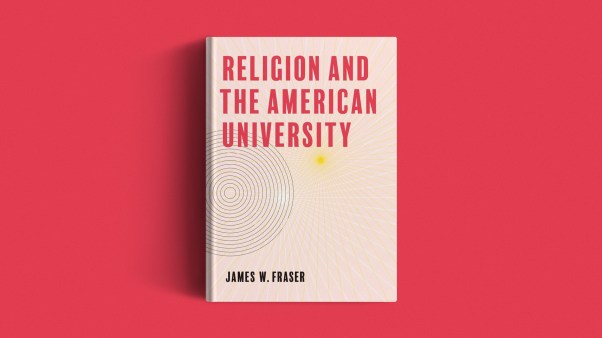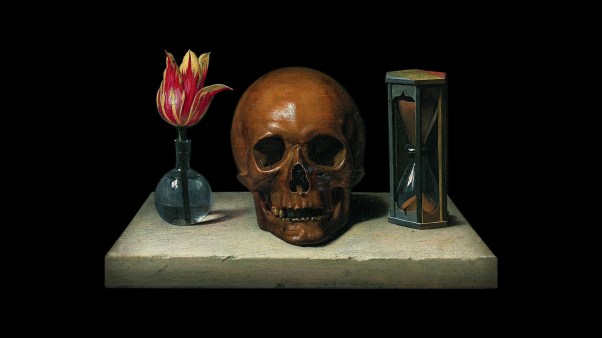Analyzing an ‘insidious legacy.’
The debate of two Scotsmen who were born on the same day one year apart marked the high point of eighteenth-century philosophy. Thomas Reid, a devout Presbyterian minister, turned philosopher and waged a full-scale attack on the skepticism of his countryman David Hume. Reid prevented Humeanism from gaining widespread acceptance during his own lifetime. Yet his own thought has suffered from long neglect. Recently, philosophers have begun to recognize the importance of Reid’s ideas.
Reid was born in Kincardineshire on April 26, 1710, entered Marischal College at Aberdeen at the age of twelve, and was inducted to the parish of New Machar in 1737. During his fourteen years at New Machar he read A Treatise of Human Nature by the rising young philosopher David Hume. The position Hume espoused shocked Reid so violently that he committed himself to its complete philosophical destruction. Like Kant in Germany, who was “awakened from his dogmatic slumbers” by Hume, Reid knew that unless Hume’s system was stopped it would permeate the academies, filter down to the ordinary man, and eventually undermine Christian truth claims. Reid obtained a post at King’s College in Aberdeen, and there, in 1752, he began a critique of the elegant skeptic’s philosophy.
There are two standard interpretations of Hume’s work, one naturalistic and one skeptical. According to the former, what Hume said about the nature of reality, the existence of God, the continuity of the self, and the foundation of value seems to deny everything that is affirmed or presupposed by Christianity. According to the other interpretation, Hume neither affirmed nor denied any thesis in metaphysics, theology, or ethics but instead questioned the ability of the human mind to know anything about these ultimate concerns.
The naturalistic interpretation fosters a picture of Hume leading frontal attacks on Christian theism and calling forth valiant defenses of it. However, as Ronald Nash has rightly noted, the really dangerous aspect of Hume’s thought is not the acceptance of naturalism and the rejection of theism but the denial that either reason or experience can establish our most basic beliefs. (An article by Nash entitled “Hume’s Heresy” appeared in CHRISTIANITY TODAY, August 6, 1976.) Hume insisted that we can take as knowledge only what is founded on reason, such as mathematics, or what is founded on experience, such as natural science. If we find a book that advances propositions beyond these limits we should “commit it to the flames, for it can contain nothing but sophistry and illusion.”
Hume readily admitted that we generally believe certain propositions that transcend both reason and experience, but he explained that we do so from custom, habit, or instinct—that is, as part of our common human nature or “common sense.” His point was simply that these basic beliefs cannot be proved or disproved, not that there are reasons to think them false. This is the difference between second-order and first-order skepticism. In effect, Hume dismantled the very framework within which our most important beliefs can be—and historically had been—rationally discussed, attacked, or defended.
The disconnection between reason and faith came to be accepted by friends of Christianity as well as by its enemies. Liberalism and neo-orthodoxy, for example, either de-emphasize or deny the place of rational, objective knowledge in religion. Orthodoxy, too, has been influenced by “philosophical skepticism” in that it now fails to exude confidence in the divinely given ability of man’s mind to know transcendent truths. Even when Christian apologetes do undertake the rational defense of traditional theology, the extreme left and right wings of the church think they are attempting to use reason where it does not apply. This is, to use Ronald Nash’s term, the “insidious legacy” of David Hume—not a straightforward assault upon the tenets of the Christian faith but an undermining of the cognitive capacity by which these truths must be properly considered.
Thomas Reid saw Hume’s view of the impotence of reason in religion as a serious indirect threat to Christianity. If not countered, he thought, it would do more damage than all the direct attacks on the faith had ever done. A widespread misconception is that Reid misread Hume, that he took him to be a first-order skeptic who denied basic beliefs about the world, God, the self, and value, and that Reid then busied himself defending these beliefs one by one. This misunderstanding of Reid is based largely upon the activities and writings of some of his followers, such as Beattie, and some of his critics, such as Priestley. It has led many philosophers, including Kant, Copleston, and Kemp-Smith, to accuse Reid wrongly of plunging headlong into a minor local skirmish when the major battle was elsewhere. Ronald Nash expressed a similar opinion in the previously mentioned article. However, a careful examination of Reid’s philosophy reveals that he was not preoccupied with attacking Hume’s skeptical conclusions or even his logic.
Reid realized that since Hume’s logic was virtually unassailable and yet his conclusions were absurd, his basic assumptions about the nature of knowledge, assumptions laid down by Locke and Berkeley, must be false. In a letter to Hume on March 18, 1763, Reid applauded him as the greatest of living philosophers and suggested that he had consistently deduced his skepticism from “principles commonly received among philosophers” that, he continued, he himself “never thought of calling into question, until the conclusions you draw from them … made me suspect them.” It was at this fundamental level that Reid sought to overturn and replace the subtle and dangerous second-order skepticism of Hume.
Skepticism is inevitable, Reid argued, only if two of Hume’s central contentions are true: (1) that the direct objects of mind are ideas or impressions ultimately derived from sense experience, and (2) that philosophical arguments or proofs are needed to justify our most basic beliefs. From assumption 1 it follows that we never know reality in itself but only reality as it appears to our minds via sense experience. This of course implies that our knowledge is ultimately restricted to empirical data and raises the haunting question whether the data accurately portray the external world.
Assumption 2 is a corollary of 1: Since we do not have direct knowledge of reality but know it only as represented by ideas in the mind, it seems that we must justify or rationally demonstrate our beliefs about it. As Hume masterfully showed, every attempt at rational justification ends in utter failure. Hume therefore concluded that reason is powerless to establish its most basic beliefs. He termed this “consequent” (second-order) skepticism to distinguish it from Descartes’s “antecedent” (first-order) skepticism, which doubted each particular knowledge claim at the outset.
When Hume’s type of skepticism shapes religious epistemology, Christianity loses what Carl F. H. Henry calls its “persuasive epistemic credentials.” Henry urges that “Christians must indicate their conviction that Christianity is distinguished above all by its objective truth, and must adduce the method of knowing and manner of verification by which every man can become personally persuaded.… Inattention to systematic methodology will seriously impair this whole range of concern including the relationship of theology to philosophy and to science, the role of apologetics, and even the content of pulpit proclamation” (God, Revelation and Authority, I, p. 213). Reid’s concern over Hume’s skepticism could not be better described.
Reid knew exactly what he had to do. He had to rebut assumptions 1 and 2, from which Hume rigorously and ruthlessly drew his conclusions. At Aberdeen, Reid formulated a systematic critique of Hume and developed an alternative theory of mental activity. When his first major manuscript, Inquiry Into the Human Mind, was ready for publication, he persuaded Hume to read it. At first Hume was cynical, taunting that it would be better if “parsons would confine themselves to their old occupation of worrying one another, and leave philosophers to argue with temper, moderation, and good manners.” But Hume changed his mind upon reading the manuscript. He wrote to Reid on February 25, 1763, acknowledging the book as a genuine challenge to his own views, and complimented the tough-minded parson, saying: “It is certainly very rare that a piece so deeply philosophical is wrote with so much spirit.” This letter signaled the beginning of mutual respect, though Hume often disliked many of Reid’s followers.
The publication of Reid’s Inquiry in 1764 marked the birth of a philosophical system that would hold Humean skepticism at bay well into the nineteenth century and earn Reid the title “defender of common sense.” Reid continued his attack on Hume’s position, organizing and expanding his original ideas, and finally produced his two most famous works, Essays on the Intellectual Powers of Man (1785) and Essays on the Active Powers of the Human Mind (1788). The latter work provided a realistic alternative to the moral relativism Hume proposed. But in the former work, a critique of Hume’s theory of knowledge, the debate was won in principle.
The use of John Locke’s Essay on Human Understanding in the schools of the eighteenth century had made the theory of ideas common parlance. After all, what could be more natural than to say that ideas are the direct objects of thought, representing or symbolizing the realities of the external world? Yet this representationalism, which no philosopher in the modern period except Reid seriously questioned, set up a dichotomy between our inner mental life and the outer world from which philosophy and theology have still not recovered. The essential problem is that we never have independent or nonsymbolic knowledge of objects by which to evaluate the adequacy of the ideas or symbols of objects in our minds.
Abraham Heschel points out that the clear implication of this perplexity for religious knowledge is that “we must … give up the hope ever to attain a valid concept of the supernatural in an objective sense” (Man’s Quest for God). He suggests that the ultimate conclusion of this approach is religious solipsism. To the degree that varieties of liberalism and neo-orthodoxy are theological grandchildren of representationalist philosophy they are subject to Heschel’s criticism.
James Hamilton carries the criticism one step further. He indicts the theory of ideas for being “idolatrous” and proposes that “the modern Moses who arose to reject this epistemic idolatry was the Scottish philosopher Thomas Reid” (“Epistemology and Theology in American Methodism,” Wesleyan Theological Journal, Spring, 1975).
Reid was quick to detect not only that there are no reasons to suppose assumption 1 is true, but also that it creates more problems than it solves. Reid’s general argument was that the puzzles and paradoxes generated by assumption 1 constitute the reductio ad absurdum of Hume’s position. According to Mortimer Adler, the question of how private ideas in one’s mind can enable one to have knowledge of an independent world of real existence underlines “all the riddles and perplexities of later empiricism” and is “a mystery that has remained unsolved” (“Little Errors in the Beginning,” Thomist, January, 1974). It is to Reid’s credit, then, that he discerned the notion of ideas as independent entities to be a root of skepticism in philosophy and epistemic despair in theology.
Reid was not content to perform the purely negative task of criticizing Hume’s theory of knowledge. He formulated an alternative theory that more adequately explained the cognitive process and avoided the problems inherent in Hume’s approach. Essentially, Reid viewed ideas as the manner in which external reality affects consciousness, and not as separate entities hanging inside the cranium like parts of a perfectly balanced mobile.
Reid also attacked assumption 2 and its implied methodology. He insisted that it is simply inappropriate to ask for independent proof of certain fundamental beliefs, since such proof may proceed ad infinitum. But it does not follow that these beliefs are then blind prejudice, as Hume supposed. They reflect the very constitution of rationality and are known through intuition, not demonstration. These truths cannot be proved and yet form the basis of all other proofs.
When Hume debunked “first principles,” he showed an incredible naïveté about the life of reason. “It is simply no use,” C. S. Lewis argues in The Abolition of Man, “trying to ‘see through’ first principles.” He goes on to say: “If you see through everything, then everything is transparent. But a wholly transparent world is an invisible world. To ‘see through’ all things is the same as not to see.” Reid says that to doubt these first principles is to doubt the reliability of reason itself, since it relentlessly tells us they are true. In his Account of Aristotle’s Logic, Reid explains the self-defeating character of Hume’s skepticism:
“It is difficult to give any reason for distrusting our other faculties, that will not reach consciousness itself. And he who distrusts the faculties of judging and reasoning which God hath given him must even rest in his skepticism till he come to a sound mind, or until God give him new faculties to sit in judgment upon the old. If it be not a first principle that our faculties are not fallacious we must be absolute skeptics; for this principle is incapable of a proof; and if it is not certain, nothing else can be certain” (Hamilton edition, p. 713; italics mine).
Ultimately, we must admit a set of common-sense beliefs that we can neither prove nor reject. Reid proposed a careful method for determining what propositions are to count as these beliefs of common sense, or first principles. He drew the first principles of his philosophy from dual sources, the common language and behavior of mankind on the one hand and rational intuition on the other. Study of the former reveals the implicit and explicit commitments that men universally make. Reid felt it would be manifestly absurd to deny in theory what everyone inevitably accepts in speech and action. Appeal to intuition delivers those propositions that are so fundamental that they cannot be established by further reasons or evidence; they are self-evident. Inspection of the common features of language and behavior avoids the charge of popular authoritarianism because it is balanced by intuition. Reciprocally, heeding the dictates of intuition escapes the problem of utter subjectivity since it is guided by the public network of human beliefs. For Reid, these two sources produce the same propositions (about the existence of the world, God, the self, value, and the like) and thus serve to confirm each other. Our common-sense truths are justified until shown unjustified by superior proof. The philosopher’s task, therefore, is to elucidate, not eliminate, their function in human knowledge.
The philosophical system Reid developed in reaction to Hume had a profound historical impact. In Scotland, the followers of Reid, such as James Beattie, Dugald Stewart, and Sir William Hamilton, popularized Reid’s position and extended it to all areas of philosophy. In France, Pierre Raul Royeu-Collard used Reid’s ideas in his attack on Condillac, and Victor Cousin, while minister of education, spread Reid’s philosophy through the schools. Schopenhauer, in Germany, admired Reid despite Kant’s misinformed condemnation of him. Reid was also highly regarded in Italy and Belgium.
Nowhere was the influence of the philosopher of common sense greater than in the United States. Before the Civil War, Reid’s philosophy was brought to America by John Witherspoon and Samuel Stanhope of Princeton, and it became the only intellectual force to oppose New England’s transcendentalism. Ironically, Reid, who was a loyal servant of the Church of Scotland, emphasized the activity of the human mind and freedom of the will and thus provided the philosophical perspective that eventually supplanted Edwardian Calvinism in the young country.
Interest in Reid’s philosophy continued in America long after it had died out elsewhere. This was largely due to the efforts of a group of men who were generally Protestant ministers and who were also common-sense philosophers and became Christian-college presidents. A representative roster includes: Francis Wayland (Brown), James McCosh (Princeton), Asa Mahan and Charles G. Finney (Oberlin), Noah Porter (Yale), and Thomas Upham (Bowdoin). The self-reliant, no-nonsense mentality of America during this period provided a welcoming atmosphere for the non-Calvinistic, free-will theology that was built on the base of Reid’s philosophy. Scottish common-sense philosophy ultimately inspired, among other things, curriculum structure at Christian liberal arts colleges and socially oriented interpretations of righteousness. In the latter half of the nineteenth century, new philosophical movements, notably absolute idealism and pragmatism, gained attention, and the Scottish tradition declined in America, the victim of neglect rather than any devastating criticism.
In recent times, the significance of Reid’s ideas is again being recognized. G. E. Moore, C. J. Ducasse, and R. M. Chisholm have proposed epistemological theories that are clearly Reidian. And Reid’s epistemology is not the only aspect of his work that is being revived. Peter Kivy has written a favorable introduction to Thomas Reid’s Lectures on the Fine Arts. Norman Daniels’s recent work entitled Thomas Reid’s Inquiry credits Reid with a brilliant and original discovery of a system of non-Euclidean geometry some sixty years before that of the mathematicians. In “Human Freedom and the Self,” Chisholm defends a Reidian definition of free will known as “agent causation.” Other examinations of Reid are appearing by philosophers such as Baruch Brody, Tom Beauchamp, and Timothy Duggan.
Despite his historical connection with important Christian movements, the name of Thomas Reid is unfamiliar to contemporary evangelicals. Equally unfortunate is the fact that many Christians, unlike the faithful Reid, often fail to work constructively with the conceptual connection between philosophy and theology. It should be apparent that many current debates between the proponents and critics of Christianity are essentially the same as the one between Reid and Hume. The crucial issue now, as it was then, concerns the ability of the mind to know ultimate truth. Articulation of the total Christian message would be strengthened by a renewal of confidence in man’s divinely given cognitive powers. Only when the battle for the mind is won can Christians hope for victory on the other fronts. That is precisely why the skeptical challenge of David Hume elicited a spirited response from Thomas Reid, the dedicated Scottish minister who became a philosopher of quite uncommon sense.
D. Bruce Lockerbie is chairman of the Fine Arts department at The Stony Brook School, Stony Brook, New York. This article is taken from his 1976 lectures on Christian Life and Thought, delivered at Conservative Baptist Theological Seminary in Denver, Colorado.









